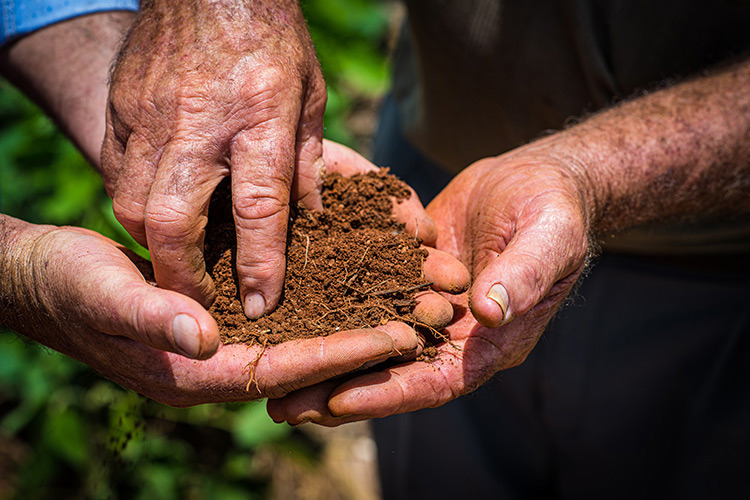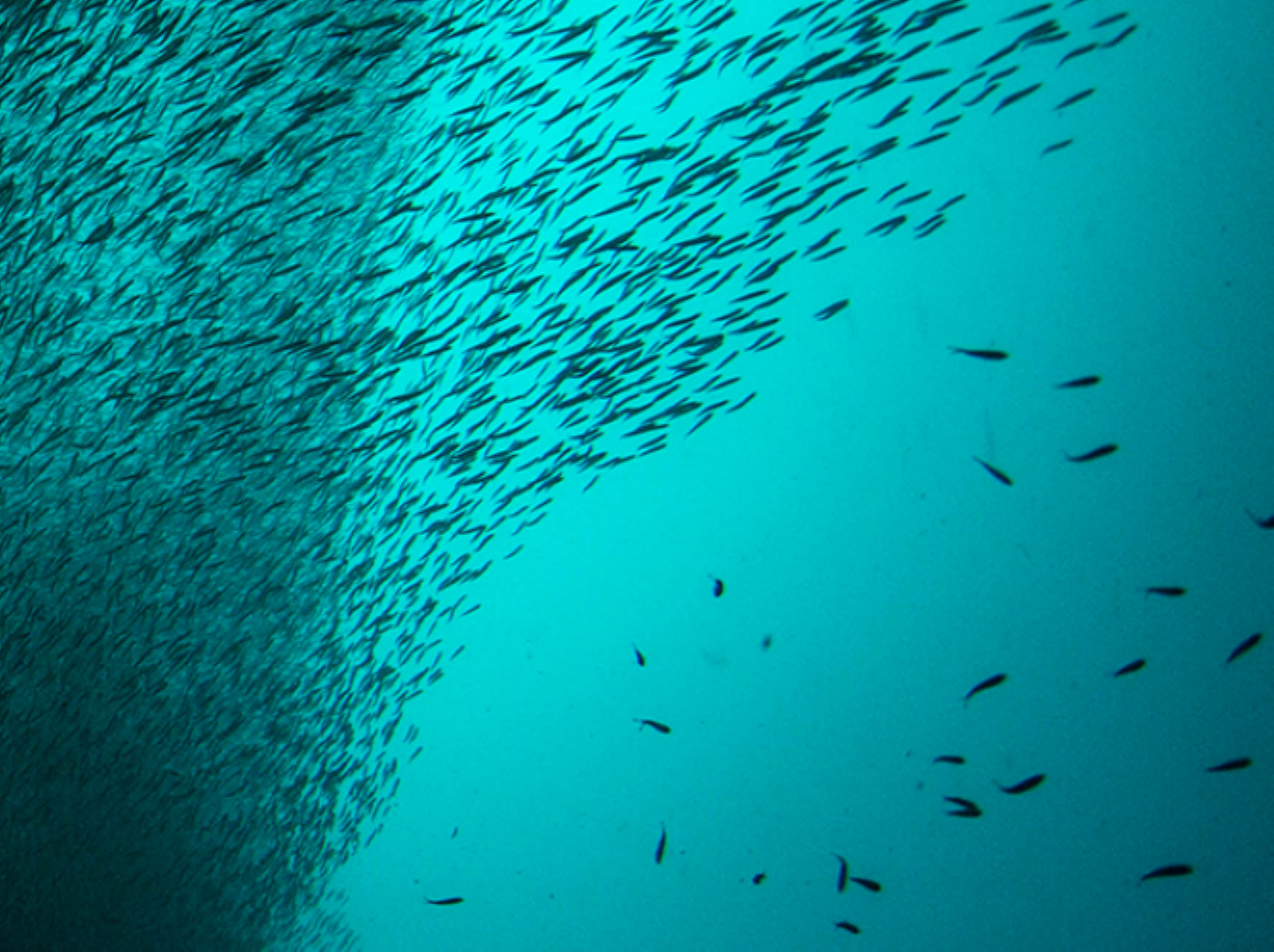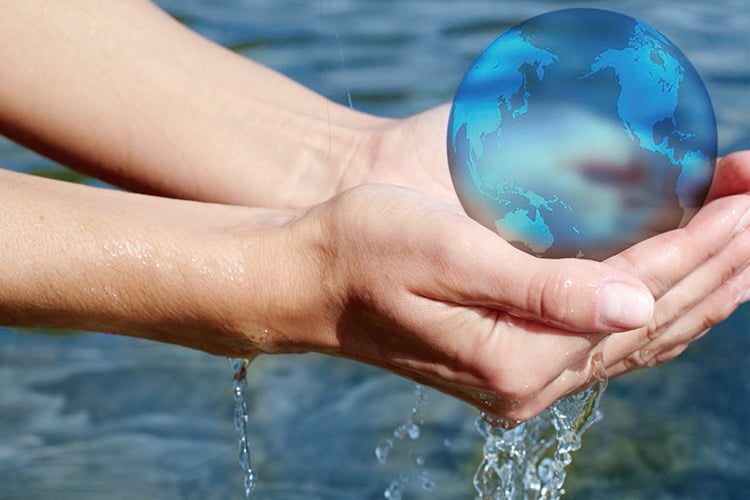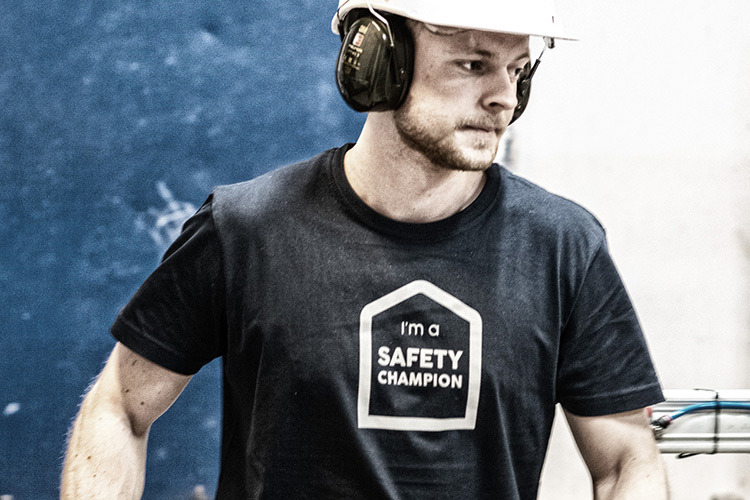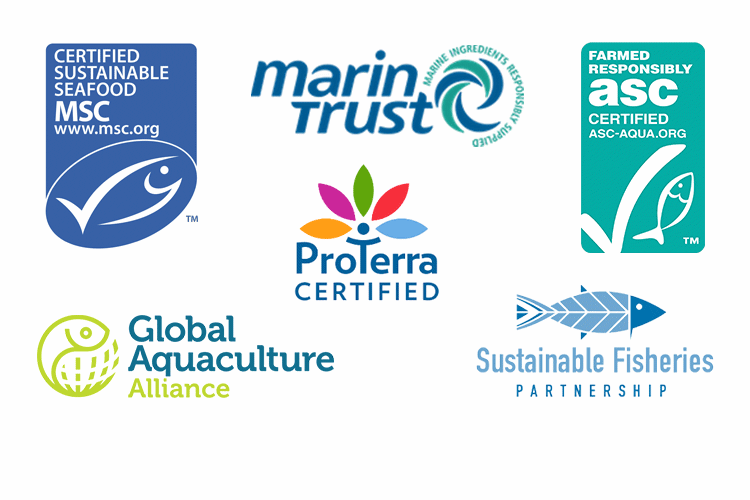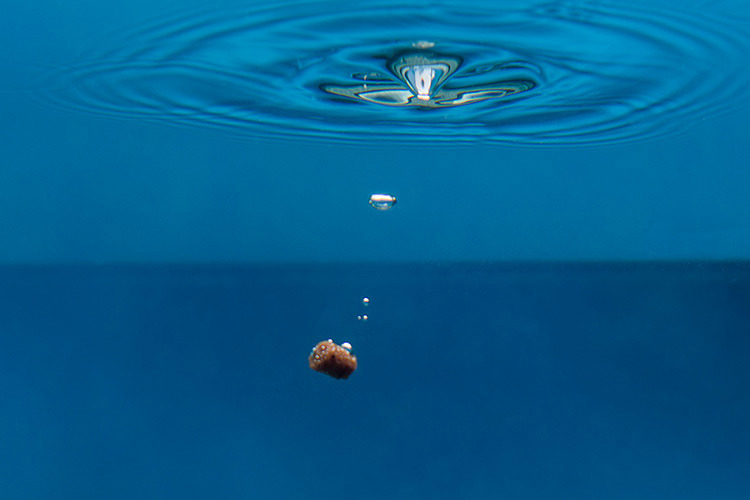
Certificates 2022
Skretting Australia certification overview
|
Best Aquaculture Practices (BAP): Feed Mill Accreditation |
Aquafeed Manufacture |
|
FeedSafe |
Stock feed milling industry code of good manufacturing practice |
|
ISO 9001:2015 |
Quality management systems |
|
ISO 14001:2015 |
Environmental management systems |
|
ISO 45001:2018 |
Occupational health and safety management standard |
| GlobalG.A.P. |
Compound feed manufacturing |
|
Hazard Analysis and Critical Control Points (HACCP) |
All 3 Skretting Norway factories has implemented HACCP (not certified) |
|
ASC Farm Standards |
Deliver ASC compliant feed for part of the production |
BAP Feed Mill Standard
Skretting Australia has held BAP accreditation for its feed mill since 2018. BAP is an international certification program based on achievable, science based and continuously improved performance standards for the entire aquaculture supply chainfarms,hatcheries, processing plants and feed mills.
GLOBALG.A.P.
Skretting is member of GLOBALG.A.P. which is an organisation that has developed criteria for food safety, sustainable production methods, worker and animal welfare, and responsible use of water, compound feed and plant propagation materials. Skretting is also a member of the technical committee that oversees the GLOBALG.A.P. aquaculture standard.
HACCP
HACCP are principles developed by the Codex Alimentarius Commission, which is a body setup by the Food and Agriculture Organisation (FAO) of the United Nations and the World Health Organisation (WHO). Skretting incorporate certified HACCP principles to manage food safety risk. The Critical Control Points (CCP) in the manufacturing process have been identified and recorded in a CCP Summary Table. This table is then used in the workplace to readily assist Skretting employees in avoiding food safety non-conformance. Skretting’s HACCP procedures are concerned with Food Safety issues that may affect fish or humans.
ISO 9001:2015
Skretting have a documented quality system which complies with ISO 9001:2015 (Quality Management Systems). This Standard is designed to achieve continuous improvement and quality focus throughout the organisation. Some of the requirements of the Standard include; written standard operating procedures, a system for ensuring corrective and preventative action, an internal auditing program, an approved suppliers program, effective process control and an effective training program.
ISO 14001:2015
Skretting have a documented environmental management system which is certified ISO 14001:2015 (Quality Management Systems). ISO14001 is the international standard that specifies requirements for an effective environmental management system (EMS). It provides a framework that an organisation can follow, rather than establishing environmental performance requirements.
ISO 45001:2018
ISO 45001 is an internationally recognized standard for occupational health and safety management systems. It provides a framework for businesses to identify and manage occupational health and safety risks, while promoting a safe and healthy workplace. This standard emphasizes the importance of continual improvement, employee participation, and effective communication within the organization. By implementing ISO 45001, Skretting Australia has demonstrated their commitment to workplace safety and improve their overall performance.
FeedSafe
FeedSafe is the Stock Feed Manufacturers’Council ofAustralia (SFMCA) industry-wide Quality Assurance program. FeedSafe is a certificate awarded by SFMCA, to feed mills which comply with the industry Code of Good Manufacturing Practice (GMP). FeedSafe certification ensures that Skretting Australia has processes in place to deal with Food Safety issues, in particular those which are relevant to biosecurity for our customers and the Australian Stockfeed Industry.
About Aquaculture Stewardship Council (ASC)
Established in 2010, the Aquaculture Stewardship Council (ASC) is a robust and credible environmental/social standard in the farmed seafood sector. It currently has over 1.6 million tonnes of farmed seafood independently certified and compliant to the standard. Nutreco's Sustainability Director sits on the Supervisory Board of the ASC. Currently Skretting is a member of the steering committee overseeing the work related to develop an ASC Feed Standard.
About MSC
The Marine Stewardship Council is an international non-profit on a mission to end overfishing and restore fish stocks for future generations. The MSC program contributes to several of the UN’s Sustainable Development Goals. MSC certification is used by countries and organisations as an integral part of their voluntary commitments towards delivering SDG14 on Life Below Water. This includes targets to end overfishing, restoring fish stocks, protect marine ecosystems and eliminate IUU fishing. The MSC also helps efforts to strengthen food security (SDG2), promote sustainable economic growth (SDG8), promote sustainable consumption and production (SDG12), and strengthen global partnerships forsustainable development (SDG17).
About MarinTrust
MarinTrust, formerly known as the Global Standard for Responsible Supply (IFFO RS ) has become the leading independent business-to-business certification programme for the production of marine ingredients. Skretting is a member of the MarinTrust governance board.
The main purpose of the standard is:
- To ensure that whole fish used come from fisheries managed according to the FAO Code of Conduct for Responsible Fisheries.
- To ensure no Illegal, Unreported and Unregulated (IUU) fishery raw materials are used.
- To ensure pure and safe products are produced under a recognised Quality Management System, thereby demonstrating freedom from potentially unsafe and illegal materials.
- To ensure full traceability throughout production and the supply chain.
The ProTerra Foundation
Skretting is member of the ProTerra Foundation which is a not-for-profit organisation that advances and promotes sustainability at all levels of the feed and food production chain. A commitment to full transparency and traceability throughout the supply chain and concern for corporate social responsibility and the potential detrimental impact of herbicide-resistant, genetically modified crops on ecosystems and biodiversity is integral for ProTerra.
Independent third party certification is central to the Proterra Foundation. ProTerra certification ensures that high quality supplies of crops, food, and feed are independently certified and produced with improved sustainability.
ProTerra certification ensures that high quality supplies of crops, food, and feed are independently certified and produced with improved sustainability
The Round Table on Responsible Soy (RTRS)
Nutreco is member of the Round Table on Responsible Soy (RTRS) which is a civil organisation that promotes responsible production, processing and trading of soy on a global level.
RTRS encourages current and future soybean to be produced in a responsible manner to reduce social and environmental impacts while maintaining or improving the economic status of the producer through the development, implementation and verification of a global standard.


